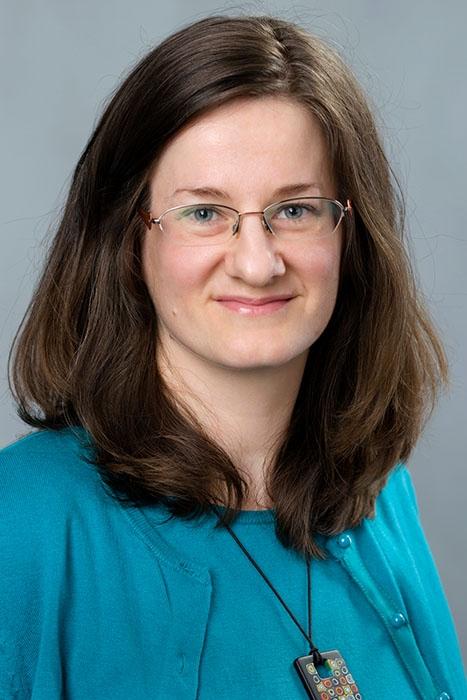Enseignants invités (2017-2024) |
Enseignants invités en 2017
Tijana Krstic

Coordonnées professionnelles
Central European University de Budapest
Medieval Studies Department
Nador utca 9, Room 515
1051 Budapest
Hongrie
+36 1 327-3000x2215
Présentation
Tijana Krstic is a historian of the early modern Ottoman Empire and its place in and connections with the wider early modern world. She is interested in social, cultural and religious history, especially in circulation of texts, artifacts, people and religio-political concepts across imperial, cultural and confessional boundaries. Her first project explored how various Ottoman Muslim and Christian authors narrated the phenomenon of conversion to Islam in the empire's formative period, between the fifteenth and seventeenth centuries. It resulted in the book entitled Contested Conversions to Islam: Narratives of Religious Change and Communal Politics in the Early Modern Ottoman Empire (Stanford University Press, 2011). Subsequently, in several articles she turned towards the early modern Mediterranean to study the experiences of Morisco refugees to the Ottoman Empire in the context of Ottoman-Habsburg relations and broader early modern religio-political developments. Currently, she is the Primary Investigator on the project entitled "The Fashioning of a Sunni Orthodoxy and the Entangled Histories of Connfession Building in the Ottoman Empire, 15th-17th Centuries" (OTTOCONFESSION), which is funded by the European Research Council's Consolidator Grant, 2015-2020.
Conférences
Dans le cadre du séminairede Natalia Muchnik (CRH), Mathilde Monge (Université Toulouse 2-Jean Jaurès) et Marie-Carmen Smyrnelis (Institut Catholique de Paris). Les diasporas : espaces urbains et trajectoires identitaires (XVIe-XIXe siècle)
Moriscos in Ottoman Istanbul, 1560s-1640s
Jeudi 4 mai de 17h à 19h
EHESS (Salle 5) – 105, boulevard Raspail – 75006 Paris
This lecture surveys the origins of the Morisco diasporic community in Ottoman Istanbul and explores both the methodological challenges of (re)constructing this group through the sources and its experiences of settling in the Ottoman capital. In particular, the lecture will examine the reactions of both Christian and Muslim groups to the refugees from Spain in the period when confessional and imperial rivalry between the Ottoman and Habsburg empires peaked and played out vividly on the diplomatic scene of the Ottoman capital.
Dans le cadre du séminaire collectif Savoirs, institutions, économies. Histoires connectées et dynamiques globales. Knowledge, Institutions, Economies. Connected histories and global dynamics
Catechetical Dialogues - Religious Instruction and Conversion in the Mediterranean in the Age of Confessional Polarization
Vendredi 5 mai 2017 de 15h à 19h
EHESS (Salle M. & D. Lombard) – 96, boulevard Raspail – 75006 Paris
This lecture will look closely at the evolution of the Ottoman instructional manuals for teaching the basics of Islam in the sixteenth and seventeenth century in dialogue with the boom in the production of the Catholic and Protestant catechetical literature during the same time period. The lecture will focus on the issues of vernacularization, catechetical and conversion strategies, the dichotomy between the print and manuscript cultures, as well as on the seemingly entangled nature of various Christian and Muslim confession-building initiatives in the sixteenth and seventeenth centuries.
Dans le cadre de l'Atelier Condorcet, Histoire comparée et connectée des christianismes orientaux, conférenceorganisée par Bernard Heyberger (IISMM)
An Ottoman Prince Who Wanted to be the Emperor of “Illyria”? Religious and Political Imagination in Slavia Orthodoxa, 16th-17th Centuries
Mercredi 17 mai de 9h à 11h
IISMM (Salle de réunion) – 96, boulevard Raspail – 75006 Paris
The lecture will focus on the political bid of Yahya Sultan (d. 1649), a man who claimed to be the second-born son of the Ottoman Sultan Mehmed III, but who professed allegiance to the Pope and spearheaded attempts to organize various Slavic and Albanian populations in resistence against the Ottomans. The lecture will explore his relationships with Rome, the Serbian Patriarchs, Albanian tribal leaders, and various other key political and religious players in the Ottoman-Venetian borderlands, the Polish-Lithuanian Commonwealth and Russia, to shed more light on the political and religious imagination in Slavia Orthodoxa from the late sixteenth to the mid-seventeenth century.
Dans le cadre du séminaire de Nicolas Vatin (CETOBAC), Études ottomanes (XVe-XVIIIe siècles)
A Catechising Grand Vizier - Lütfi Pasha (d. 1563) and the Politics of Sunni Confession Building in the Sixteenth-Century Ottoman Empire
Jeudi 18 mai de 10h à 12h
EPHE (Salle H 638, escalier U) – 17, rue de la Sorbonne – 75005 Paris
In attempt to broaden the cast of historical characters known to have been actively involved in religious politics--especially of what has been termed "Sunnitization"--in the sixteenth-century Ottoman Empire, this lecture will examine the catechetical opus of Lutfi Pasha (Grand Vizier from 1539 to 1541). Lutfi Pasha is known primarily for his chronicle of the Ottoman dynasty and the book of advice for the viziers. However, it is less commonly known that he was also extremely interested in religious sciences (especially fiqh and aqaid) and wrote extensively in this field, including at least four catechetical works. The lecture will contextualize Lutfi Pasha's catechetical opus in the Ottoman and broader sixteenth-century politics of religious orthodoxy, orthopraxy and religious instruction.
Accueil et durée du séjour
-
Invitée par Natalia Muchnik
-
1 mois (Mai 2017)
 Actualités
Actualités
Forum de littérature médiévale comparée
 Conférence - Mercredi 24 avril 2024 - 18:00Le Forum de littérature médiévale comparée (Forum für mediävistische Komparatistik), site géré par Julia Rüthemann (post-doctorante au EHESS-CNRS, CRH, Université de Potsdam), Beatrice Trînca et Lea Braun, a le plaisir de vous inviter à sa troisième sér (...)(...)
Conférence - Mercredi 24 avril 2024 - 18:00Le Forum de littérature médiévale comparée (Forum für mediävistische Komparatistik), site géré par Julia Rüthemann (post-doctorante au EHESS-CNRS, CRH, Université de Potsdam), Beatrice Trînca et Lea Braun, a le plaisir de vous inviter à sa troisième sér (...)(...)
Lire l’État. Venise médiévale et ses territoires: représentations, cartographies, littératures
 Journée(s) d'étude - Lundi 29 avril 2024 - 09:00Ce Workshop est organisé par Christophe Austruy (EHESS-CNRS, CRH) et Giovanna Corazza (Università Ca’ Foscari - Venezia / University of Notre Dame, MSCA Fellow), dans le cadre de l’Atelier doctoral Histoire, Économie, Société et Culture dans l’Empi (...)(...)
Journée(s) d'étude - Lundi 29 avril 2024 - 09:00Ce Workshop est organisé par Christophe Austruy (EHESS-CNRS, CRH) et Giovanna Corazza (Università Ca’ Foscari - Venezia / University of Notre Dame, MSCA Fellow), dans le cadre de l’Atelier doctoral Histoire, Économie, Société et Culture dans l’Empi (...)(...)
Quantifier la Shoah. Classer, compter, modéliser / Quantifying the Holocaust. Classifying, Counting, Modeling
 Colloque - Mardi 14 mai 2024 - 08:45L'élaboration et la discussion des techniques d'enquête et d'analyse quantitatives percutent et renouvellent de nombreux champs de la recherche historique. Comment cela affecte-t-il les études sur la Shoah ? Ce colloque, oragisé par Claire Zalc (CNRS IHMC, EHE (...)(...)
Colloque - Mardi 14 mai 2024 - 08:45L'élaboration et la discussion des techniques d'enquête et d'analyse quantitatives percutent et renouvellent de nombreux champs de la recherche historique. Comment cela affecte-t-il les études sur la Shoah ? Ce colloque, oragisé par Claire Zalc (CNRS IHMC, EHE (...)(...)
CRH (UMR 8558)
EHESS
54, boulevard Raspail
75006 Paris
Tél. : +33 (0)1 49 54 24 42
Direction du CRH :
Dernière modification :
27/04/2024


